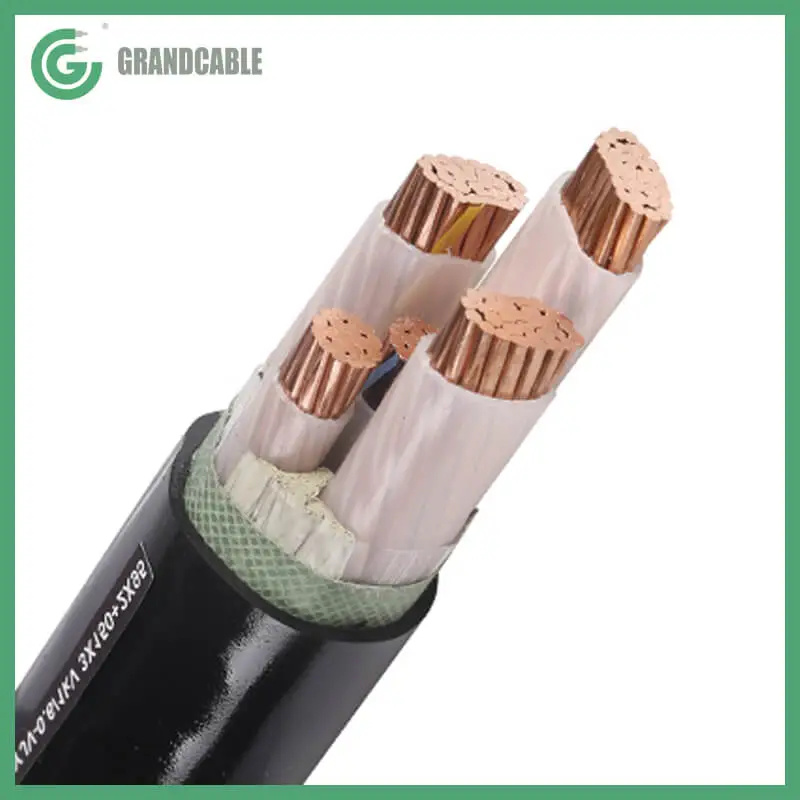Projects
GRAND CABLE
PROJECTS
Why Durable Copper Electric Cables Are Essential for Long-Lasting Connections
1. Introduction to Copper Electric Cables
In the ever-evolving landscape of electrical engineering, copper electric cables have emerged as a cornerstone for efficient power distribution. Whether for residential, commercial, or industrial applications, the durability and reliability of these cables are paramount. This article explores the essential characteristics that make copper cables the preferred choice for lasting electrical connections.

2. The Importance of Cable Materials in Electrical Systems
Choosing the right cable material is crucial for any electrical system. This section will explore the following:
2.1 Conductivity and Efficiency
Copper is renowned for its excellent electrical conductivity, outperforming many other materials. High conductivity reduces energy loss during transmission, making copper cables an efficient choice for power distribution.
2.2 Durability and Longevity
Durable materials ensure that cables withstand environmental factors and mechanical stresses. Copper cables resist corrosion and maintain their integrity over time, contributing to long-lasting connections.
3. Key Characteristics of Durable Copper Electric Cables
Understanding the unique features of copper cables is essential for making informed purchasing decisions.
3.1 High Tensile Strength
Copper exhibits remarkable tensile strength, providing resistance to stretching and breakage. This characteristic is particularly important for installations requiring flexibility and adaptability.
3.2 Thermal Conductivity
Copper's high thermal conductivity allows it to dissipate heat effectively. This reduces the risk of overheating, enhancing the safety and reliability of electrical systems.
3.3 Resistance to Environmental Factors
Copper cables are less susceptible to adverse weather conditions, chemicals, and physical wear. This resilience ensures that they perform well in various environments, from harsh industrial settings to residential applications.
4. Applications of Durable Copper Electric Cables
Copper electric cables find applications across a wide range of sectors and functions.
4.1 Residential Wiring
In homes, copper cables facilitate safe and efficient wiring for lighting, outlets, and appliances. Their durability ensures long-lasting performance, reducing the need for frequent replacements.
4.2 Industrial Uses
Industries rely on copper cables for heavy machinery and equipment. Their strength and resistance to wear make them ideal for environments where performance and safety are paramount.
4.3 Commercial Electrical Systems
In commercial buildings, copper cables support complex electrical systems, ensuring a reliable power supply for operations. Their efficiency contributes to lower energy costs, making them a cost-effective option.
5. Energy Efficiency and Cost Savings
Durable copper cables not only offer reliability but also contribute to energy efficiency.
5.1 Reduced Energy Loss
High conductivity means lower energy loss during transmission. This efficiency leads to reduced operational costs for businesses and homeowners alike.
5.2 Long-Term Investment
Though the initial cost of copper cables may be higher than alternatives, their longevity and performance make them a wise investment. The reduced need for replacements translates to savings over time.
6. Ensuring Safety with Durable Copper Cables
Electrical safety is a concern for everyone involved in the installation and use of electrical systems.
6.1 Fire Resistance
Copper's ability to handle high currents without overheating reduces the risk of electrical fires, ensuring safer installations.
6.2 Compliance with Standards
Using high-quality copper cables ensures compliance with national and international electrical safety standards, protecting users and minimizing liability.
7. Maintenance and Care for Copper Electric Cables
Proper maintenance can extend the life of copper cables even further.
7.1 Regular Inspections
Routine checks can identify potential issues before they become critical. Inspecting connections, coverings, and support structures enhances safety.
7.2 Cleaning and Environmental Protection
Keeping cables clean and protected from environmental hazards can significantly improve their longevity. Using protective casings or conduits is advisable in industrial or outdoor settings.
Durable copper electric cables are vital for establishing reliable and long-lasting electrical connections. Their exceptional conductivity, strength, and resistance to environmental challenges ensure optimal performance across various applications. Investing in quality copper cables not only guarantees safety and efficiency but also leads to significant long-term savings. By understanding the importance of these cables, we can make informed decisions that enhance the safety and reliability of our electrical systems. Embracing durable copper electric cables is not just a choice; it is a commitment to quality and longevity in our electrical infrastructure.
Related News


